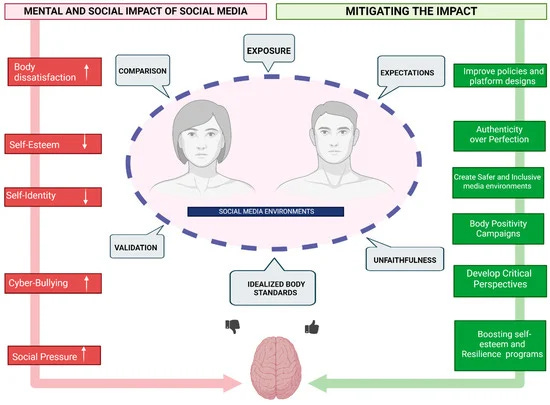Building with Bricks or Sand: How the Systems We Rely On Are Failing Us and What It Will Take to Change Them
The importance of carefully navigating their integration into society to avoid past capitalist exploitations.
Welcome to the First Edition of Right Side Up
A fresh perspective on our collective journey forward. Join conversations on psychedelics, marketing, society, and mental health! This Substack features an open chat room where you're welcome to share discussions, suggestions, and topics you'd like me to cover.
The United States, like many nations, faces an overwhelming challenge: addressing the root causes of its deepest issues. Rather than solving these problems, our systems pile solutions on top of outcomes that were never truly resolved. This creates a fractured, inefficient structure where complexity breeds corruption, and the average person is left in the dark, unsure of what’s real. Society today is an intricate web of noise—distracting, confusing, and increasingly difficult to navigate without tools like meditation or mindfulness apps. In a country founded on the principles of freedom and individual power, this is a dangerous place to be. The truth is, what we provide to the people shapes their reality—offer them bricks, and they will build; give them sand, and they will struggle to create. The incentive to accumulate wealth pervades everything, and people will find ways to exploit every opportunity to amass it. But how do we shift the incentives, moving toward real change?
It’s often said we need more opportunities, but the reality is that opportunities are everywhere. What we lack is the clarity to recognize them. Tools like psychedelics, therapy centers, and education resources seem promising, yet we can’t ignore the cracks in the system. Consider psychedelic stocks, Big Pharma lobbying, or the issues surrounding BetterHelp (non-HIPAA compliant, allegedly selling data to maximize profits). There’s a clear shortage of financial incentive to genuinely help people. So, how can we create the incentives that will truly foster change?
The Shift From Capitalism to Technofeudalism
Our society has evolved, not towards the utopia we envision, but into a new form of control: technofeudalism. While people should remain at the heart of our systems, today, their attention is the product being sold—at the cost of their wellbeing. We are drowning in information, much of it carefully curated to fit the narrative of the day, rather than offering a truthful glimpse of reality. This isn't just a trend—it's a structural flaw that distorts our perceptions of the world, leading us to believe that what we consume is the truth. The tide is changing, though. If you look closely, more authentic, raw content is beginning to emerge. If you’re tuned into the right channels, it may even dominate your feed.
The constant flood of distraction, designed to trigger dopamine responses, warps what we need, amplifying mental health challenges. We see a surge in mental health concerns, as a recent study highlights, driven in part by this unrelenting stream of noise.
Current systems are built on accumulation of weath instead of individual well-being. This pursuit of wealth is not only misdirected but it also prevents us from seeing the opportunities for meaningful change that lie before us.

Consider the different paths our society can take. With capitalism as the driving force, we started by creating products that serve the masses, but over time, we’ve veered into a psychological war for attention. This shift has spawned new industries built on data—data that grows increasingly invasive, all in the pursuit of more clicks, more views, and more profit. Our society’s metric for success has become the accumulation of wealth, not the well-being of its people. But what if we redefined success? What if, instead of chasing wealth, we focused our efforts on mental health in its entirety—addressing every aspect that nurtures agency, gratitude, and the pillars of well-being? Imagine the transformative potential of a society where emotional regulation, social connection, physical wellness, purpose, and financial security are our true measures our movement into this future state of society.
For a nation to thrive, its success hinges on the emotional, social, and physical wellbeing of its people. At an individual level, emotional regulation—having the tools and services to process and manage emotions—fosters personal stability and mental clarity, which in turn lowers crime rates, improves conflict resolution, and reduces domestic violence on a national scale. When people are connected to each other, forming strong relationships and support networks, they foster a society with higher trust, better civic engagement, and greater community cohesion. This sense of unity is mirrored in physical wellness; when individuals prioritize exercise, nutrition, and rest, the collective benefits ripple outward—lower healthcare costs, higher productivity, and a more resilient workforce.

At a deeper level, purpose and meaning fuel not just individual lives but entire economies, driving innovation, entrepreneurship, and volunteerism—elements that propel a nation forward. Financial security provides the bedrock for personal stability, and when people feel financially secure, they contribute to a healthier economy—lower welfare dependency and higher tax revenue. Finally, environmental stability serves as the framework for all these components, ensuring people live in safe, sustainable conditions that promote overall health and long-term growth. These pillars, when integrated into the fabric of society, create a synergy that elevates both individuals and the nation as a whole, fostering a thriving, resilient future.
This is the path forward, and it starts with the recognition that real change begins from within—not just as individuals, but as a society united by a shared vision of a healthier, more connected world.
Thanks for reading Right Side Up, if you want to support it subscribe for free and leave a comment! It helps a lot.



